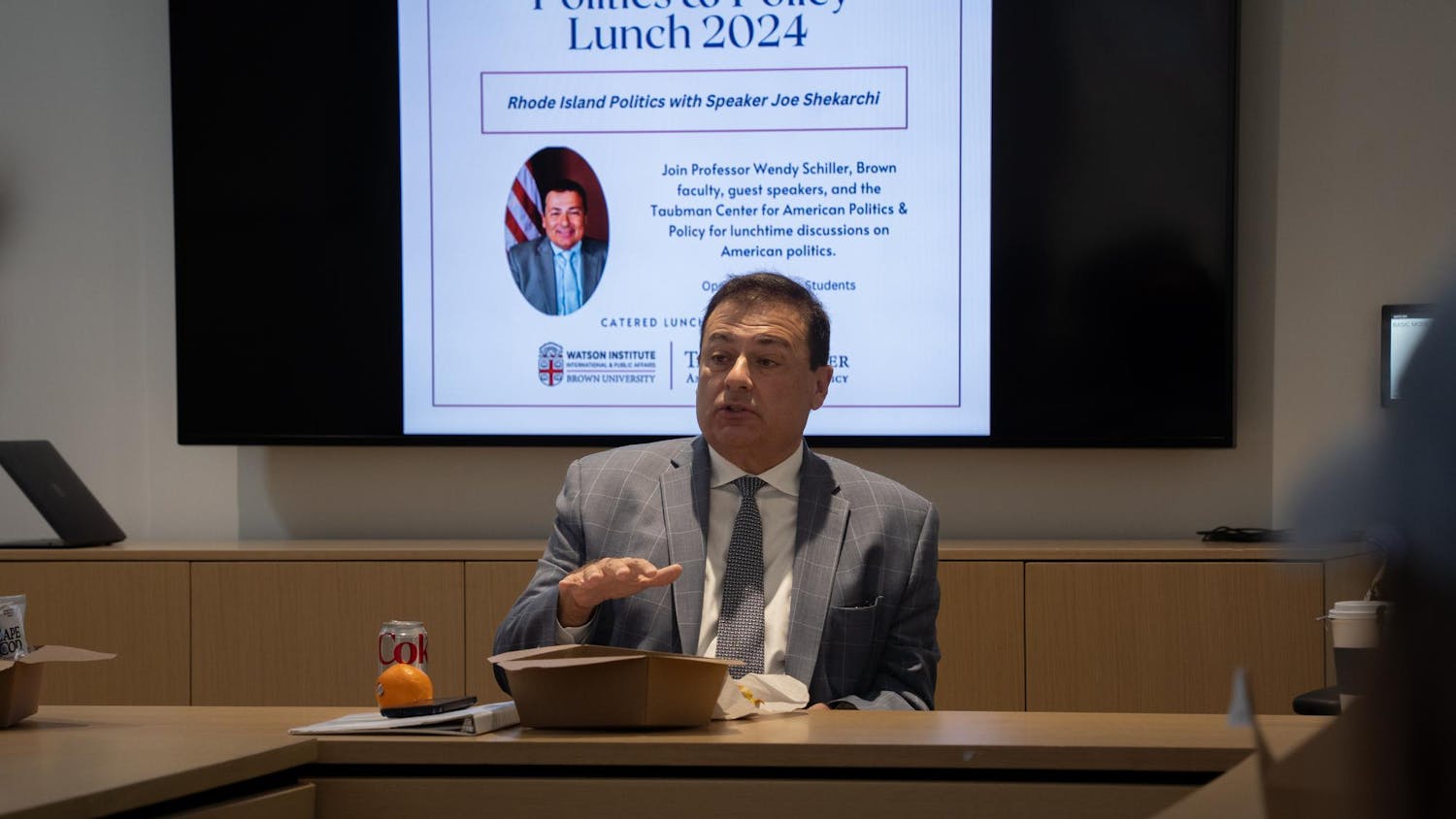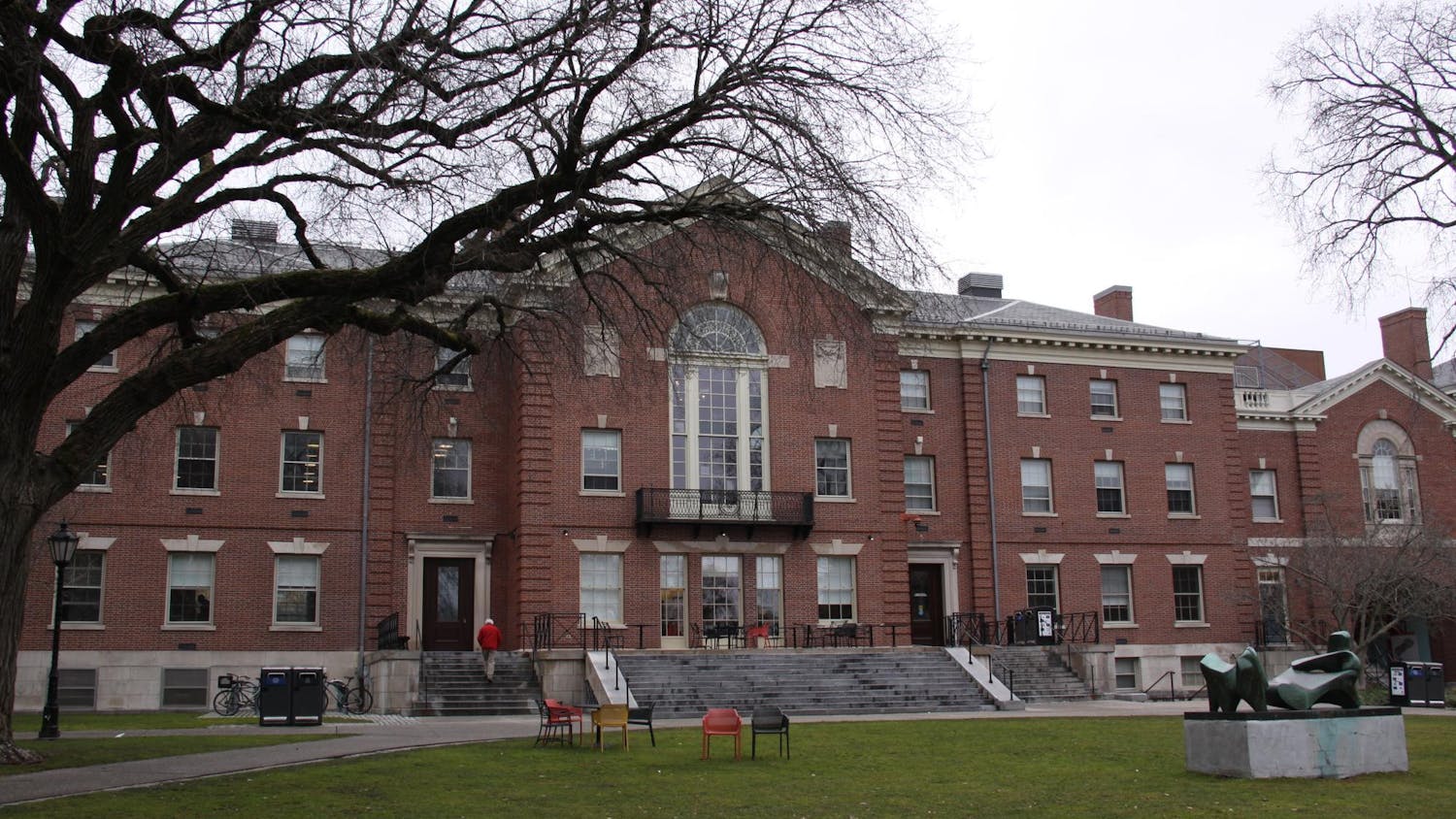What does a Brown degree mean in the job market today? According to Lauren Rivera, not much.
When competing for high-end positions at law firms, consulting firms and investment banks, Brown graduates fall behind students at the top-four "super-elite" universities, according to Rivera's recent study in the journal "Research in Social Stratification and Mobility."
Rivera, assistant professor of management and organizations at Northwestern University, examined how firms use education to recruit and evaluate job seekers.
In her study, Rivera said she conducted 120 interviews at top-tier firms and acted as a participant observer at the recruitment department of one firm for a year. She asked employers about the recruitment process, what they look for in applicants and what kind of candidates they had recently interviewed, she said. She also asked them to evaluate resumes of fictional applicants.
Graduates from Harvard, Yale, Princeton, Stanford and the Wharton School of the University of Pennsylvania have the highest hiring rate, according to the study. Rivera said this was not necessarily due to the schools' relative prestige, but could be due to factors such as the alumni base in the firm.
Employees wanted
Andrew Simmons, director of the Career Development Center, said students are still successful at finding employment at these top-tier firms. "I've certainly seen that a lot of employers from banking, business, technology, consulting and nonprofits recruit through our center," Simmons said.
"My sense is that Brown gets a little bit less attention than some of the other schools from other firms — but they get a lot of attention from us," said Chris Bierly, head of North America associate consulting recruiting at Bain and Company, which recruits from 40 colleges and universities in North America. "We think of Brown as a core school — one of the three or four best sources of talent in the Ivy League."
Barclays, Bank of America and Merill Lynch have stepped up their recruiting efforts at Brown, while Goldman Sachs is a "regular participant," Simmons said. "From what I hear, they like Brown students and their entrepreneurial spirit, ability to work independently and think critically, their analytical skills and high level communication skills."
There is no national survey comparing job prospects after graduation across top-tier schools, he added, "But in terms of employment, I think our school does very well because of the attributes that (Brown graduates) bring to the table."
"Whether that has to do with the Brown degree or the attributes of Brown students — I don't know," he said.
Student successes
Carolyn Siegel '11, who has received a job offer from an elite financial firm upon graduation, said she has found that a Brown degree does hold value. Siegel asked that The Herald not print the name of the firm because of a confidentiality clause in her contract.
"At some of my job interviews I apologized for my lack of financial training and they all said … that they were more interested in getting smart, motivated people," she said. "That is what is recognized in a Brown degree — there is a reason that it's so prestigious."
She said she does not know whether it would have been harder or easier had she been applying from another Ivy League school.
"Coming from Brown positions you well in the job market and the world," she said. "It signals you went to an Ivy League and have a certain level of open mindedness, creativity and overall intelligence that can't be undervalued just because you might not have picked up practical skills in classes. With a liberal education, it won't be long before you're up to speed with everyone else."
"Brown teaches you a lot of skills that a lot of schools don't necessarily teach," said Whitney Sparks '11, a commerce, organizations and entrepreneurship concentrator. "Having a Brown degree makes you really unique, but some people don't give Brown as much credit as other universities." She also said that she found the Brown network "very positive and helpful."
Roshni Assomull '10.5, who will start working at Citibank in London this year, said studying in the U.S. after having lived in the U.K. was an advantage because Citibank looks to "hire a diverse range of people."
"People abroad look at Brown favorably. They know it's an Ivy League university," she said. Assomull added she felt the Brown degree helped her get an internship with Citibank last summer, which then helped her secure a job with the bank this year.
Sparks did note that during her internship with Goldman Sachs, there were fewer students from Brown than from universities such as Harvard, Penn and Duke.
This may be due in part to receiving fewer applications. Bierly said Bain typically receives 300 applications from Brown compared to about 600 applications from Harvard.
Although Bain receives fewer applicants from Brown than from schools like Harvard, Penn and Stanford, Bierly said the quality of students who are interested is very high and the number of offers given to Brown students each year is "right up there with the top three schools in the Ivy League."
"Brown is a really incredible place. You learn to think in a certain way — approach things in more of an entrepreneurial, ambitious manner," Sparks said. "I think anyone with a Brown degree has to take advantage of it."




